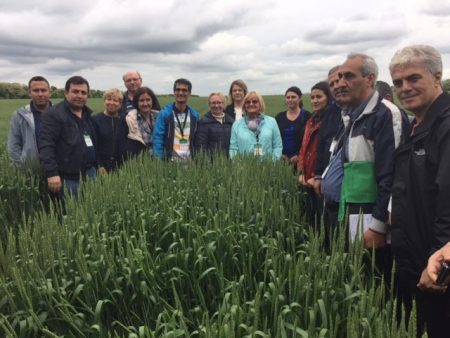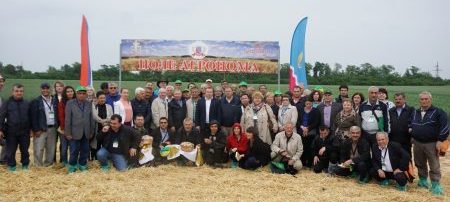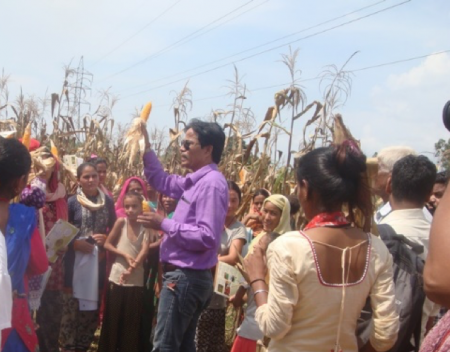
KRASNODAR, Russia (CIMMYT) – The sixth International Winter Wheat Travelling Seminar was recently held in Krasnodar, Russia, to improve wheat breeding across West and Central Asia.
Wheat is a staple in Central and West Asia and is critical to food security in the region. The biannual traveling seminar allows breeders from across the region to tackle challenges like climate change’s impact on wheat production, the spread of rust disease and improving grain quality.
The seminar was first launched in 2007 by the International Winter Wheat Improvement Program (IWWIP), a partnership between Turkey’s Ministry of Food, Agriculture and Livestock, the International Maize and Wheat Improvement Center and the International Center for Agricultural Research in the Dry Areas to bringing together IWWIP members from Central and West Asia to share the results, discuss challenges and develop future plans for cooperation. Previous seminars were held in Azerbaijan, Bulgaria, Georgia, Romania, Turkey, Ukraine and Uzbekistan.
Through IWWIP, improved wheat varieties are annually distributed from the Facultative and Winter Wheat Observation Nursery in Turkey to more than 100 partners in 50 countries. To date, more than 70 varieties have been released in Central and West Asia by IWWIP, covering up to 20 percent of all wheat grown in the region.
The seminar was held at the Krasnodar Agricultural Research Institute and Agricultural Research Center, attracting 74 participants from 17 countries in Central and West Asia, as well as Eastern and Western Europe.
Participants were shown wheat breeding and research plots, as well as multiplication of new barley and wheat varieties. The group was highly impressed by the level of breeding and research activities, the diversity of the germplasm and its yield potential. Varieties from the Krasnodar Institute are grown on several million hectares in Russia and other countries, contributing to regional and global food security. In the afternoon, several presentations were made from hosts and guests reviewing the current status of winter wheat improvement and regional collaboration. Participants also focused on breeding and agronomy activities.

The group also traveled to a farm in Rostov, Russia, that was demonstrating different winter wheat varieties and saw two seed production state farms that multiply the varieties from the Krasnodar Institute. All the fields visited were very well maintained, clean and with yield expectations exceeding 7-8 tons per hectare. More than two million hectares of wheat is grown in Rostov, providing about 8 percent of Russia’s total wheat.
Winter wheat varieties from Russian public breeding programs dominate about 95 percent of the country’s production area, though local and multinational private companies are increasingly emerging as key players in the sector.
A wrap up meeting was held with several presentations by the participants and the IWWIP strategy was presented and endorsed. Participants also stated their appreciation for the organizers, Krasnodar Agricultural Research Institute, and for IWWIP’s activities in developing and distributing germplasm. The event was supported by the Turkish government, the CGIAR Research Program on WHEAT and the Food and Agriculture Organization of the United Nations.
Any questions about the seminar? Please contact Alexey Morgounov (a.morgounov@cgiar.org ) Fatih Ozdemir (fatihozde@hotmail.com) or Mesut Keser (M.Keser@cgiar.org)
 Capacity development
Capacity development 

